Top 20 Pharmacy Schools in the Midwest
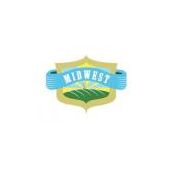
 11. University of Kansas School of Pharmacy, Lawrence, Kansas
11. University of Kansas School of Pharmacy, Lawrence, Kansas
Established in 1885, the University of Kansas School of Pharmacy is the only school of pharmacy in the state of Kansas. It was the University's first professional program and the third public school of pharmacy in the U.S. The School offers a Pre-pharmacy program and the Pharm.D. as well M.S. and Ph.D. degrees in Medicinal Chemistry, Pharmacology & Toxicology, and Pharmaceutical Chemistry. The school also offers a M.S. in Pharmacy Practice.
The Pharm.D. program is offered at both the Lawrence and Wichita campuses. The Lawrence campus is home to 150 students and the Wichita campus houses 20 students. Tuition for the School of Pharmacy is $14,575.50 per 18 credit hours at $809.75 per credit hour.
About University of Kansas: The University of Kansas was established in 1866. It is
home to 28,000 students and five campuses including Lawrence, Kansas City, Overland Park, Wichita, and Salina. The main campus (Lawrence) sits on roughly 1,000 acres and it houses 13 schools offering more than 345 degree programs in 200 fields.
 12. Wayne State University Eugene Applebaum College of Pharmacy & Health Sciences, Detroit, Michigan
12. Wayne State University Eugene Applebaum College of Pharmacy & Health Sciences, Detroit, Michigan
The Eugene Applebaum College of Pharmacy & Health Sciences at Wayne State University dates back to 1891 when it operated as “Detroit College of Medicine.” Today the College is made up of three academic departments including Fundamental & Applied Sciences, Health Care Sciences, and Pharmacy. Offerings include the Pharm.D., and M.S. and Ph.D. degrees in Pharmaceutical Sciences with specializations in Medicinal Chemistry, Pharmaceutics, and Pharmacology & Toxicology.
Tuition for the Pharm.D. program is $20,298.70 for residents and $38,789.10 for non-residents. Tuition for the Ph.D. program is $40,600 for residents and $78,856.30 for non-residents. The cost for the M.S. in Pharmaceutical Sciences is $20,434.30 for residents, and $39,562.30 for non-residents.
About Wayne State University: Wayne State University was established in 1868.
It is Michigan’s only urban research university and one of the largest urban research universities in the country. The University, which sits on a 191-acre campus in Detroit's Midtown neighborhood, is home to nearly 30,000 students enrolled in 370 academic programs across 13 colleges and schools.
 13. University of Missouri-Kansas City, School of Pharmacy, Kansas City, Missouri
13. University of Missouri-Kansas City, School of Pharmacy, Kansas City, Missouri
The University of Missouri-Kansas City School of Pharmacy was founded in 1885 as the Pharmaceutical Department of the University of Kansas City. The School offers the Pharm.D., and Ph.D. degrees in Pharmacology and Toxicology, and Pharmaceutical Sciences. Tuition for the School of Pharmacy is $9,876.45 per semester for residents (15 credit hours) and $ 20,904.95 per semester for non-residents.
About University of Missouri-Kansas City: University of Missouri-Kansas City was established in 1929. It is home to 15,492 students, enrolled in more than 50 majors and 125 academic areas. One of the Top 75 “Best Value” Public Universities in the U.S., University of Missouri-Kansas City sits on a 191-acre campus, which ranks among the Top 100 Greenest Campuses in the nation.
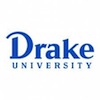 14. Drake University College of Pharmacy & Health Sciences, Des Moines, Iowa
14. Drake University College of Pharmacy & Health Sciences, Des Moines, Iowa
The Drake University College of Pharmacy & Health Sciences consistently ranks among the Top 100 Pharmacy Programs in the U.S. It is home to nearly 500 students enrolled in a variety of degree and joint degree programs. Offerings include a B.S. in Health Sciences with a Pharmaceutical Science track, the Pharm.D., and joint degree programs including Pharm.D./Law, the Pharm.D./MBA, and the Pharm.D./MPA.
Tuition for the Drake University College of Pharmacy & Health Sciences is $17,175 per semester for years 1-3, and 19,328 per semester for year 4. Tuition rates are for full-time students taking 10-18 credit hours per semester. Part-time students (years 1-3) pay $700 per credit hour and $725 per credit hour for year 4.
About Drake University: Drake University was founded in 1881 with just one building and 77 students. Today, this top-ranked school sits in a 150-acre campus and it is home to more than 5,400 students. Drake University offers more than 90 academic programs across six colleges and schools.
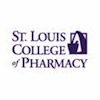 15. St. Louis College of Pharmacy, St. Louis, Missouri
15. St. Louis College of Pharmacy, St. Louis, Missouri
St. Louis College of Pharmacy (STLCOP) is the nations fourth oldest and 10th largest college of pharmacy. Founded in 1864, St. Louis College of Pharmacy is one of a handful of pharmacy colleges to admit students directly from high school. The College sits on eight acres and it is home to 1,350 students from 31 states and several countries. Roughly 75 percent of the city’s pharmacists are St. Louis College of Pharmacy graduates.
St. Louis College of Pharmacy offers the Pharm.D. and tuition costs are as follows:
Year 1: Per semester (12 to 18 credit hours): $12,259. Individual credit hours (more than 18, less than 12, and Summer session): $805. Year 2: Per semester (12 to 18 credit hours): $12,114. Individual credit hours (more than 18, less than 12, and Summer session): $805
Years 3, 4 and 5: Per semester (12 to 18 credit hours): $13,304. Individual credit hours (more than 18, less than 12, and Summer session): $885. Year 6: Summer Semester: $8,870, Fall & Spring Semester: $8,869 (each semester). Individual credit hours (more than 18, less than 12): $885.
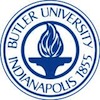 16. Butler University College of Pharmacy & Health Sciences, Indianapolis, Indiana
16. Butler University College of Pharmacy & Health Sciences, Indianapolis, Indiana
The Butler University College of Pharmacy & Health Sciences was established in 1904. The Pharmacy program ranks among the Top 100 Pharmacy Programs in the U.S. Offerings include the Pharm.D., a M.S. in Pharmaceutical Sciences, and several dual degrees.
Dual degree offerings include the Pharm.D./MBA and the Pharm.D./MPS. Tuition for the Butler University College of Pharmacy is $643 per credit hour.
About Butler University: Founded in 1855,Butler University sits on a 295-acre campus and it is home to 4,771 students. Named the No. 1 “Up-and-Coming” institution among Regional Universities Midwest by U.S. News & World Report, Butler University offers more than 80 programs across six colleges.
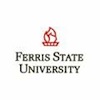 17. Ferris State University College of Pharmacy, Big Rapids, Michigan
17. Ferris State University College of Pharmacy, Big Rapids, Michigan
Ferris State University College of Pharmacy received accreditation from the Michigan Board of Pharmacy in 1893. Since then, the College has become the “principle source of pharmacy practitioners in the State of Michigan.” The College offers the Pharm.D. degree. Tuition for the program is $591 per credit hour for residents and $887 per credit hour for non-residents.
About Ferris State University: Founded in 1884, Ferris State University was originally known as the “Big Rapids Industrial School.” The school, which sits on an 880-acre campus, has 19 additional sites across the State of Michigan and at the school's Kendall College of Art and Design in Grand Rapids. Ferris State University is more than 14,000 students enrolled in more than 180 programs throughout eight colleges.
 18. University of Toledo, College of Pharmacy & Pharmaceutical Sciences, Toledo, Ohio
18. University of Toledo, College of Pharmacy & Pharmaceutical Sciences, Toledo, Ohio
The College of Pharmacy & Pharmaceutical Sciences was the first college established at The University of Toledo. Founded in 1904, the College ranks among the nation's Top Pharmacy Schools by U.S. News and World Report. Offerings include the Pharm.D., a M.S. and Ph.D. in Medicinal Chemistry, a Ph.D. in Experimental Therapeutics, and a M.S. in Pharmaceutical Sciences with programs in Pharmacology/Toxicology, Industrial Pharmacy, and Health Outcomes and Socioeconomic Sciences (formerly Pharmacy Health Care Administration).
The College also offers a B.S./M.S. in Medicinal Chemistry, a B.S. in Pharmaceutical Sciences with majors in Cosmetic Science, Medicinal and Biological Chemistry, Pharmaceutics, Pharmacology/Toxicology, and Pharmacy Administration, and a Pharmacology/Toxicology Certificate.
Resident tuition for the Pharm.D. program is $7,863.85 per year for Professional Years 1-2, $6,204 for Year 3, and $13,818.33 for Year 4. Non-resident tuition is $16,983.84 per year for Professional Years 1-2, $11,321.28 for Year 3, and $25,252.87 for Year 4.
Graduate tuition is $6,517.80 per semester for Ohio residents and $11,634.84 per semester for non-residents.
About University of Toledo: The University of Toledo was established in 1872. It is home to 23,000 students enrolled in more than 300 undergraduate, graduate, and professional programs, throughout 17 colleges. The 400-acre Toledo campus is one of 14 state universities in Ohio.
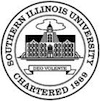 19. Southern Illinois University Edwardsville School of Pharmacy, Edwardsville, Illinois
19. Southern Illinois University Edwardsville School of Pharmacy, Edwardsville, Illinois
The Southern Illinois Edwardsville School of Pharmacy is the only pharmacy program in Southern Illinois. Established in 2005, the School offers the coveted Pharm.D. and the Pharm.D./MBA dual degree program. Tuition for the School of Pharmacy is $12,498 (based on 12 semester hours) for residents, and $14,744.55 for non-residents. The Summer session is $5,653.60 for residents and $6,665.60 for non-residents.
About Southern Illinois University: Established in 1957,Southern Illinois University ranks among the Best Colleges (Regional) by U.S. News & World Report. The school, which sits on a 2,660-acre campus, houses more than 14,000 students enrolled in more than 80 programs throughout eight colleges and schools.
 20. North Dakota State University College of Pharmacy, Nursing, and Allied Sciences, Fargo, North Dakota
20. North Dakota State University College of Pharmacy, Nursing, and Allied Sciences, Fargo, North Dakota
Established in 1902 with just five students, The North Dakota State University College of Pharmacy, Nursing, and Allied Sciences is now home to 1,812 students enrolled in more than a dozen pre-professional, professional, and graduate programs. Offerings include the Pharm.D., M.S. and Ph.D. degrees in Pharmaceutical Sciences, the Pharm.D./Ph.D. dual degree program, and a Vaccinology Minor.
Base tuition for North Dakota State Universitystudents is $6,336 per year (North Dakota residents), $7,097 per year for Minnesota residents, and $16,918 per year for non-residents. The Pharmacy program begins in the junior or senior year, so tuition increases. College of Pharmacy tuition for North Dakota residents is $12,502 per year, $13,305 per year for Minnesota residents, and $33,380 per year for non-residents.
About North Dakota State University: Established in 1890 as North Dakota Agricultural College (NDAC), the 258-acre North Dakota State University (NDSU) is part of the 11-campus North Dakota State University system. Ranked among the Top 108 Public and Private Universities in the Country by the Carnegie Commission on Higher Education, NDSU is home to more than 14,000 students enrolled in over 100 academic programs, across eight colleges, a graduate school, and multiple cooperative and continuing education centers.
Pages

- Facebook Like
- Google Plus One
- 146315 reads


